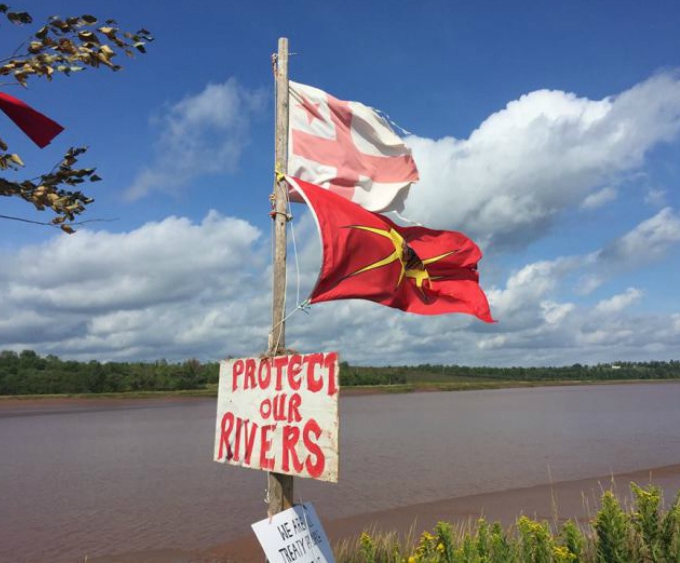
KJIPUKTUK (Halifax) – The Nova Scotia Utilities and Review Board (NS-UARB) is pondering whether to extend a construction permit for the Alton Gas underground storage caverns to 2023.
As part of this approval process interested parties were asked to submit comments in writing. These submissions, some 60 or so, as well as the Alton Gas response, are posted on the NS-UARB website.
The submissions show that it is an urgent and important issue for many stakeholders. No surprise here.
Among those who raise objections are anxious Brentwood Road residents who live in close proximity to the caverns, Mi’kmaw water protectors and their allies, the Sipekne’katik First Nation, environmentalist organizations such as the Ecology Action Centre, and geologist Robert Grantham, who is concerned about risky geological conditionsin the area.
In a brief phone call last month Paul Allen, executive director of the NS-UARB told us that the Board is pursuing some issues around Indigenous consultation, and that beyond that, because of the Board’s mandate the approval process will focus on safety issues that have arisen since initial approvals were granted.
What Allen didn’t say, but what is clear is that what happens next, how the submissions are weighed, what is considered in scope, all these deliberations will occur away from the public, and away from the press.
The decisions are not clear cut however. For instance, what’s in scope and what isn’t is very much up for debate.
The Ecology Action Centre (EAC) in its submission points out that the earlier UARB approval was conditional on Alton Gas remaining in compliance with environmental approvals already in place.
That’s not the case, the EAC suggests, and they give examples. This pulls environmental concerns back in scope, the EAC says.
In particular the EAC and many other submitters say that staff of the federal department of Environment and Climate Change Canada (ECCC) believe that the company’s current plan to discharge brine into a channel and subsequently into the Shubenacadie River is not in compliance with federal regulations.
As well, in terms of safety issues, the EAC and others point out that standards for cavern construction have evolved, but that Alton Gas has not modified its application to reflect these changes.
And then, as if these topics aren’t complex enough, there are issues around the lack of consultation raised by the Sipekne’katik First Nation and individual Treaty holders.
The UARB is best known for its decisions on highly complex matters, typically of a financial nature. It is used to dealing with issues such as payday loan rates and regulations, power rate applications, expropriations, natural gas franchise applications, and so on.
In order to make decisions in those cases hearings are held, sometimes going for on weeks, witnesses are questioned and statements are challenged by stakeholders and their lawyers. Frequently the Board appoints specialists to act as expert witnesses. The hearings are public, and are almost always reported on in the media.
When at the end of that process a decision is rendered affected parties may be unhappy, but they can never complain about not having had their say, nor can they argue that the entire process wasn’t transparent.
Sadly that’s not the case in the Alton Gas decision currently in front of the UARB.
With a special thanks to our generous donors who make publication of the Nova Scotia Advocate possible.
Subscribe to the Nova Scotia Advocate weekly digest and never miss an article again. It’s free!



